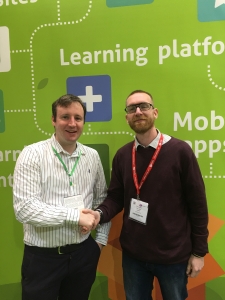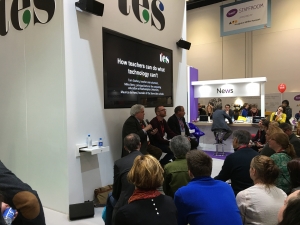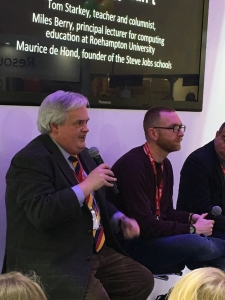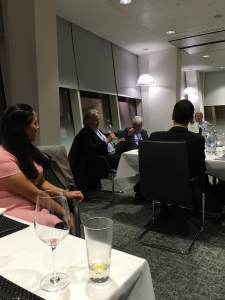
Peter Wilkinson Yorkshire Tech Entrepreneur
Graham Pearce, Director at KPMG in Leeds, invited me to the inaugural Tech Leeds dinner with guest speaker Peter Wilkinson. Peter started off in the tech business back in 1974 and, whilst not being very academic at school, he started his first business selling potato chips to students before it was shut down. His costs were a potato peeler and and some potatoes – he still claims it to be one of his highest margin businesses to date. Whilst Peter was not the most academic at school, he probably had the most pocket money.
On the issue of Entrepreneurship – “Are Entrepreneurs born or can it be learnt?” – Peter believes it is something you are born with. Peter’s success has meant the creation of over 7,000 jobs and this is one of the things he is most proud of. His philosophy was to start a business, get it to a certain size and then sell it or hand it over to professional managers for the repetitive operational management. Peter is very much a creative personality full of both ideas and the determination and energy to make things happen. He admits it isn’t getting any easier, and you need to get the timing in business correct. Sometimes you can be too early.
Peter got involved with game-activation with Sky set top boxes and pressing the red button. This is now commonplace, but at the time it was ahead of the market and so it failed. In failure, Peter expresses, you need to be able to write off the failures, learn from them and start again.
Peter’s involvement in telehealth and MedTech came from the fact that a work colleagues was spending ridiculous amounts of time visiting the hospital for health checks. Focusing on the problem, Peter developed an application to automate this process without the need to go to hospital, saving time, money and the inconvenience.
At 61, Peter is nearing the end of his career, and he openly admits his next two projects will be his last. One project is to put Wi-Fi networks into football stadia and the other is a telehealth app aimed at reducing the burden on the NHS. The NHS now has 70% of beds taken up by the elderly and the more of this care which can be done outside the hospital, the better for the healthcare system, which is already under pressure.
Peter is very humble in his achievements and downplays his intellect – he only got one A level in Ancient History and failed everything else! Peter is also a proper Yorkshireman, telling it how it is with no waffle – he is direct and to the point.
The founder of Freeserve has been involved in many tech success stories in Yorkshire including Sports Internet, Planet Online and InTechnologies, and he bought Hull City Football Club before selling it a few years later after Hull’s promotion to the Premier League. Peter has also made a donation to Leeds University and the incubator facility, helping seed fund many university spin-outs and start ups which show much promise.
On TechNorth and the Northern Powerhouse, Peter says the North needs a “Boris Johnson-like figure”, and without it there will be too many egos and clashing of agendas rather than the joined up thinking of a figurehead to drive it forward. Peter considers himself politically neutral but admits the transport infrastructure needs to be better to make the Northern Powerhouse happen.
Peter, when questioned by KPMG’s Dermot Callinan (Partner and Head of UK Private Client), explained the importance of respect and good old-fashioned traditional values. He also warned of the entitlement attitude and the potential threat of the emerging economies, where people have to work hard or they are fired. Peter stated he would like to see more big businesses and corporates buying from small to medium sized enterprises. He feels we have evolved into a risk-averse culture where corporates only buy from corporates.
On the issues of talent, Peter commented on the fact that most talented people are already running a business. The people left are hard to find and are a rare breed. Dermot commented that this talent is really the differentiator between growing a business with A-players and not making the grade. It was openly admitted that there is a shortage of tech skills in Leeds, and an example of this is Sky Bet, a company Peter sold to Sky. Sky Bet is now having to find its tech talent not only in Leeds but also in Sheffield due to shortages.
In 1974, Peter explained, tech was quite narrow, but now it is all-consuming and very broad. There is great demand for tech talent and it cuts across many industries – be it smart TVs, MedTech, FinTech, EdTech – the list goes on. So when you talk about tech, you need to ask what sort of tech do you actually mean, as all businesses are becoming tech businesses.
All in all, it was great to meet and connect with other Yorkshire tech businesses such as York Data Services, AQL, Fleet On Demand (FOD) and more. Peter shared words of wisdom from someone who is very much a private person – he rarely does public speaking. Peter joked this is the first tech dinner talk and probably his last. Peter prefers to spend his time with the peace and quiet of the North York Moors. Silicon Dale, after all, does not have the earthquakes that you get in Silicon Valley!

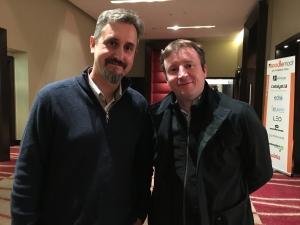
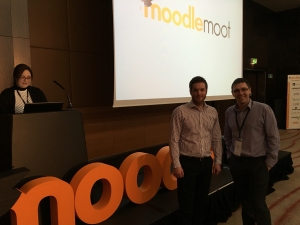
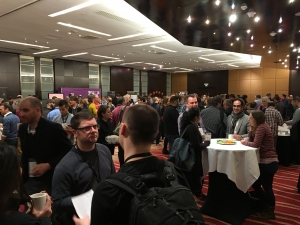





 Some of the benefits of Extended Learning Enterprise are:
Some of the benefits of Extended Learning Enterprise are: